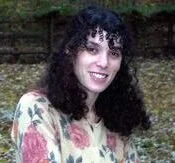In May Day, Jackie Kay, a much-loved poet, novelist, and short story writer, once again delivers a collection that will surely move both readers new to the author and long-time fans of her work.
The former Makar (national poet) of Scotland, Kay offers readers a poignant series of elegies, ones capable of transporting readers across time while inspiring engagement and activism for the present. Recounting a life of activism, from Kay’s childhood in Glasgow (A Life in Protest– “1974: when Madame Allende comes to Glasgow, after Pinochet’s coup and Allende’s murder,” 3) and protest marches (“1984: marching with Pride through London! Lesbians and gay men dressed to impress. Me with my double-headed axe, yes,” 4) to a global pandemic (Still, Mother’s Day 2020– “So still, so still, still, still” 55) to Black Lives Matter protests, Kay seamlessly weaves personal memoir with associated political upheaval, period events, and the human condition in its many forms.
As Kay guides readers through lived experiences and associated recollections, the relationship of daughter-to-mother and mother-to-daughter is a constant presence. Kay’s mother features prominently throughout the entirety of the collection (with a sequence of three Mother’s Day poems a powerful testament to the thunder of silence whether or not living, while living or dead.
The influence of a mother, Kay’s mother, is explored repeatedly in poems such as Mother’s Day, 2021 (56)--
You are still my mother. I am still your daughter.
Though there is nothing now between me and the sky,
I will still be saying hello and you say goodbye.
and more, including “Blue Boat Mother”, “My Mum is a Robin”,
and “Three Little Birds”--
That day in the ambulance, heading for the mortuary
with my newly dead mum on the trolley beside me,
so herself still it didn’t seem possible
that she could be dead at all,
the first responder’s ringtone went off.
…
I would have thought she’d have chosen
‘Non, je ne regrette rien’, by Edith Plaf
or Nat King Cole’s ‘Almost Like Being in Love’,
the song she took to singing every day
of her last few years. What a day this has been.
Kay’s gorgeous text pulses with a palpable life story interwoven with layers of longing and love for layers of living. Kay writes in ways that make the past a part of the present and a powerful tribute to poetry as a tool for both documentary and autobiography.
Kay repeatedly, consistently, and expertly teaches how to write poetry that is as powerful as it is poignant and as therapeutic as it is thought-provoking. May Day is a work of quiet strength and compelling story. The poems repeatedly and powerfully weave active reflection with activism inspired by a love for nation, family, intentionality, and solidarity while fighting for social change.
Of natural beauty, Kay’s words– line by line, stanza by stanza, poem by poem, string a love letter to family and a map of familial history. The work not only showcases the potential for poetry to document with a historical lens but also to move readers to ponder and revisit lesser-known pockets of history. Within those pockets rest a goldmine of endless story- story Kay captures so well in May Day.
The autobiographical collection chronicles Kay’s life, as written in the aftermath of the passing of her adoptive parents, Helen and John Kay. Subjects include both mother and father as well as unexpected yet likely familiar names such as Paul Robeson, Picasso, Harry Belafonte, Louise Gluck, Joan Baez, and more. The pieces infuse and sustain new life in figures both of family and familiar names.
From page to page, poem to poem, Kay moves seamlessly through time and era, offering readers a gorgeous blend of vivid imagery and memorable story while mourning and celebrating lives gone. The poet turns distress into dances with beauty, and distance into daring queries of life’s most important meanings.
From “Daughters, Neighbours (for Elaine)”
And then came sorrow,
your mammy’s hearse pushed uphill in the snow.
My mum following ten days later.
The snow still thick in our street.
…
walking grief’s long corridor
to the open window, the open door,
knowing we could not have given more.
We could not have given more.
to
“Oh my oh my oh my”
Further than the sky now, you and I,
as far apart as the moon and the earth
and yet not. Not at all. Not apart.
You, you, you who orbit my heart.
May Day is warmth wrapped in a humanist perspective and a poet’s prowess. The collection is a deeply delightful, deep read from an ever-more-delightful poet. If I may, I encourage anyone looking for their next collection to find space for this phenomenal work– one that will prompt a wealth of emotion and reflection in and off your reading queue. It’s a sure tonic to any day’s call for fresh words and a collection of protest songs that channel grief into forward movement.
Jen Schneider is an educator who lives, writes, and works in small spaces throughout Pennsylvania. She loves words, experimental poetry, and the change of seasons. She’s also a fan of late nights, crossword puzzles, and compelling underdogs. She has authored several chapbooks and full-length poetry collections, with stories, poems, and essays published in a variety of literary and scholarly journals. Sample works include Invisible Ink, On Habits & Habitats, On Daily Puzzles: (Un)locking Invisibility, A Collection of Recollections, and Blindfolds, Bruises, and Breakups. She is currently working on her first series, which (not surprisingly) includes a novel in verse. She is the 2022-2023 Montgomery County PA Poet Laureate.


